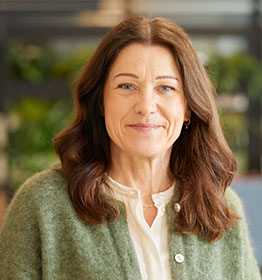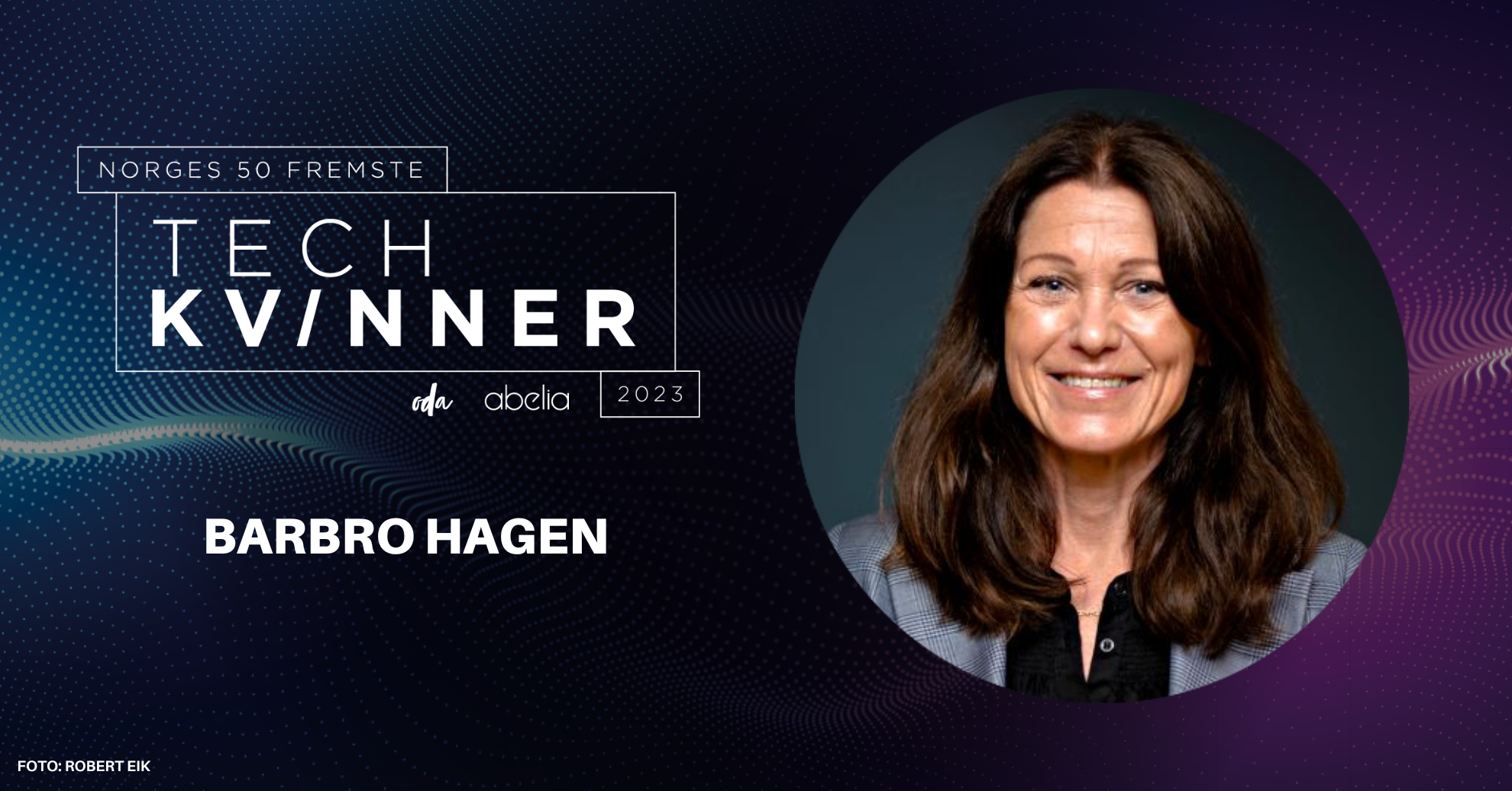Øystein E. Søreide is the CEO of Abelia and the leader of the selecting jury. He believes that it is crucial to have diversity among those who create and develop technology.
– It matters who creates the algorithms and writes the code that makes new solutions work. Whether it concerns consumer technology, industrial software or control systems for offshore wind turbines and carbon storage systems. In Norway, we have every opportunity to choose the education that make us the most relevant for the future. But even the Norwegian technology industry is too unidirectional, says the CEO of Abelia, Øystein E. Søreide.
– Happy and proud
– I am very happy, proud and grateful for the award. I am in a company of so many beautiful and motivating women, and I hope I can be an inspiration to other women – but also men – in this area, says Barbro Hagen.
– For me, as a manager in the tech area, a lot is about how we work. I think good teams only get better with a rich diversity and therefore cheer for it.
She also points out that a customer focus is important.
– The customer is at the centre of all the development we do. My experience is that gender balance and diversity provide a much better basis for gaining optimal customer insight and understanding, says Barbro Hagen.
If the solution is made by men, they are adapted for men
Since 2016, the proportion of women in the tech sector has increased by a marginal 2.2 percentage points, according to recent figures from Statistics Norway (SSB). At this rate, we won’t reach full equality in technology for almost 100 years. This puts the Norwegian advantage at risk.
Norway’s 50 Best Tech Women is an initiative to highlight talents and role models that can contribute to more women choosing technology careers – also from outside the typical recruitment pool.
– Technology in itself is neither discriminatory nor unidirectional, but the data we base ourselves on and the way we put together new solutions can be. If the solutions are made by men, they are also adapted for men. It can create major challenges for key parts of the user base, says Søreide.
A historical blister
– We as a society have made this mistake in the past. Historically, the exclusion of women from medical research has meant that we today have major knowledge gaps related to several diseases, that not only affect men, but also women. If we as a society do not address this, we will see unfortunate ripple effects for a long time to come, says Gunn Severinsen in the ODA-Network.
Furthermore, she says that the problem lies in the entire technology chain where it is men who develop, finance, and manage the companies where the technology is created. Today, only 15 percent of managers in Norwegian ICT companies are women, according to Statistics Norway.
About the award
Abelia, the NHO association for knowledge and technology companies, and ODA-Network, the Nordic region’s leading network for diversity in tech, are behind the award. The purpose is to increase the proportion of women who are passionate about, and work with, technology.
After an open nomination process, the 50 winners have been selected by a jury led by Øystein Eriksen Søreide. The jury emphasises:
- how she excels at understanding technology
- particular contributions and achievements
- motivation/effort for diversity and inclusion in technology
Barbro Hagen
Direktør teknologi og digitalisering
Chief Digital and Technology Officer

